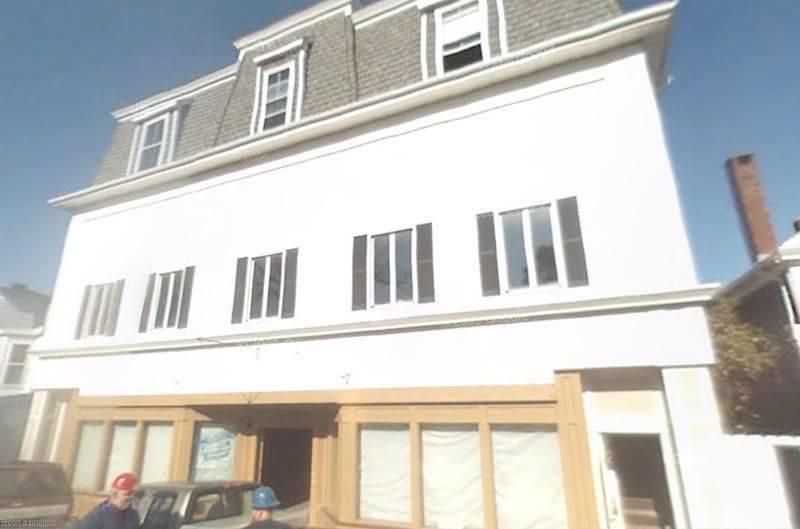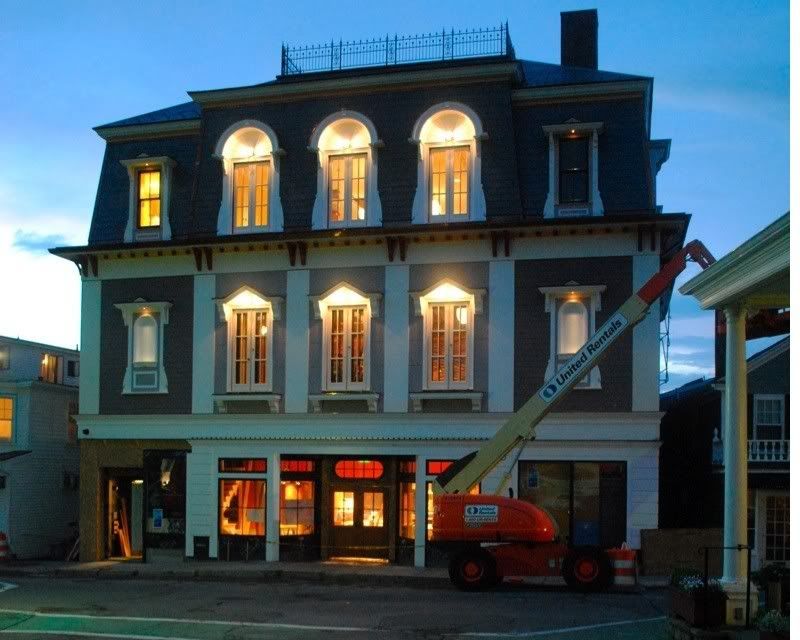Even if you are building in a classicist style, you can still try for something interesting.
I agree. But what is with this "Disneyland" label? To me it means artificial, nostalgic, cartoonish, cheap, phony and manipulative. I don't necessarily see that here.
The reason this building looks like it does is because the building that was demolished to make way for it looked like this:
Look familiar?
Essentially the same facade--envelope,massing, and style. The people of Rockport decided they wanted to preserve their Main Street as a coherent whole. They did gussy it up quite a bit, presumably to differentiate it from the commercial buildings around it and visually announce that this is an important civic building.
Now, I think some of the Main St. facade details are wonky, especially the window surrounds. But that aside, this reflexive "Disneyland" label hurled upon any building that incorporates an 'historic" style is horseshit.
The tenets of Modernism were codified around 100 years ago; the Victorian Era preceded it directly. So why are contemporary buildings built according to the former lauded as minor masterpieces while contemporary buildings built according to the latter dismissed as "Disneyland"?
Modernism, ironically, has become just another historic style--just ask Docomomo. But I don't believe its potential has been exhausted...just as I don't believe the potential of the other historic styles have been exhausted.
Anyways, my point is modernism is not naturally more "appropriate" than any other "historic" styles simply because.




